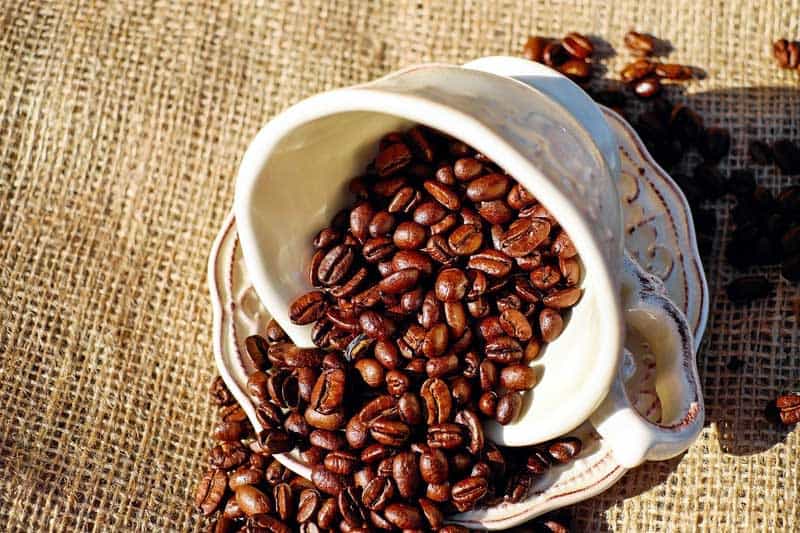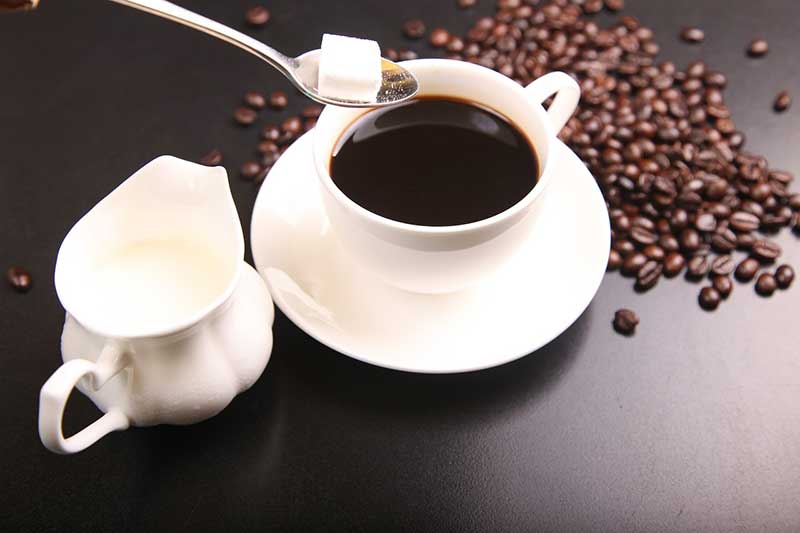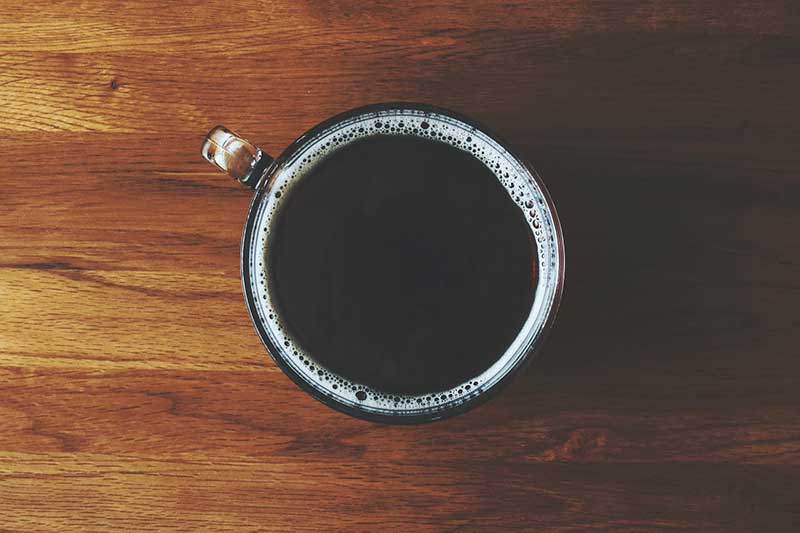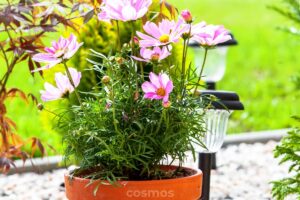This page may contain affiliate links. If you click and buy, we might get a small commission at no cost to you.
Black coffee can be intimidating. It’s probably what your grandpa drank, and it seems like a strong, powerful drink that should be consumed with caution. It’s also much better for you than drinking coffee with cream and/or sugar, or than any of the many coffee drinks on the menu at your favorite coffee shop. In light of that and several other reasons we’ll learn about, you may want to know how to start drinking black coffee.
The cream and sugar added to your coffee can easily become a huge source of added calories, carbs, and fats in your diet, and cutting them out can make a big difference if you’re trying to lose weight or be healthier. It’s also cheaper to drink black coffee.
In addition to health concerns, most coffee aficionados agree that, if you want to fully appreciate the nuances of quality coffee, you shouldn’t be adding anything to it. Perhaps you just want to switch to black coffee in order to better appreciate a quality cup.
How to start drinking black coffee – 7 tips
No matter your reasons, switching to black coffee can be difficult if you’re used to sweetened coffee, coffee with cream, or elaborate coffee drinks. Fortunately, it’s still doable, and you may find that once you’ve made the switch you’ll never want to go back.
Here are the best tips for anyone who wants to start drinking black coffee.
1. Get quality coffee
With no cream or sugar, there’s nothing to mask any flaws in the coffee. For the best experience, buy freshly roasted coffee from a local coffee roaster. Though nowadays you can also source your coffee online and get it delivered within just a few days of it being roasted.
Here are a couple of coffee brands that I personally like:
2. Buy whole bean coffee

Coffee begins to go stale almost immediately once its ground, and stale coffee is awful. Buy whole bean coffee and a burr grinder, and grind your beans right before brewing. You won’t regret it.
3. Experiment with brewing methods
Ditch the cheap automatic coffee machine and don’t you dare touch those single-serve, cartridge-based coffee makers. Buy a French press, learn to make pour-over, etc. Find the brewing method that you like the best.
4. Go to specialty coffee shops
It should be fairly easy to find a local coffee shop nearby. Most of these smaller coffee shops use locally roasted coffee or roast it themselves. If you’re used to cheap coffee at home or to a certain, big-name coffee chain, you’ll be shocked at the difference in flavor.
5. Weigh your coffee and water
This is going to seem way too geeky, but trust us. The only way to consistently brew quality coffee is to use a kitchen scale to measure your coffee. Coffee beans vary widely in density, and the roast level will affect density even more. Those coffee scoops that come with every grinder and coffee maker are virtually useless for measuring coffee.
6. Use a little bit of sugar

It may be helpful to add a small amount (a teaspoon or less) of sugar to your coffee at first. This is just enough to add a bit of sweetness but not enough to cover up the flavors of the coffee, so it might help you to adjust to drinking black coffee.
7. Stick with it
It may take some time for your palate to adjust. Black coffee’s flavors are more subtle than the taste of sugars and creamers, and at first, you’ll probably wonder what all the fuss is about. Keep at it, though, and pretty soon you’ll start noticing all the unique flavors that black coffee has to offer.
What you should know about black coffee

Much of what people know about black coffee is based on bad coffee. Good coffee is drastically different, and there’s a lot to learn. For instance, coffee isn’t bitter. At least, not the way most people think it is.
Freshly roasted, freshly ground, properly brewed coffee shouldn’t have a strong bitter taste. Any bitterness should be more like the bitterness of fine dark chocolate or the tannins in a premium red win. It should have a bit of natural sweetness to it, as well.
Coffee smells and flavors can range from deeply fruity and wine-like to distinctly chocolatey, to a definite peanut flavor depending on where the beans were grown, how they were processed, the roast level, and brewing method. Most of the flavors commonly associated with coffee are the result of stale, pre-ground coffee brewed with too much water, at too low a temperature.
Brewing Methods
Automatic drip machines typically don’t heat the water enough to make the highest quality coffee possible. The water needs to be between 195 and 205 degrees, sometimes referred to as “off the boil”, and most coffee makers top out around 185. This can lead to under-extracted coffee, which will be more bitter, have less body, and less flavor than properly brewed coffee. Though there are many drip coffee makers that still make an excellent up of coffee, if you want the best you may need to upgrade.
The French press, pour-over, and Chemex are all excellent, affordable ways to brew great coffee, and it’s a good idea to experiment with all of them to see which method you like best. Most specialty coffee shops use one or more of these methods, so you can try them out without buying the brewing equipment first.
Here are some options for coffee makers that make excellent cups of coffee, and are also quite inexpensive!
- Cafe Du Chateau French Press Coffee Maker
- Bodum Pour Over Coffee Maker
- CHEMEX Pour Over Glass Coffee Maker
Grinders
To make good black coffee, you’re going to need a grinder. The cheapest option is a simple blade grinder like this one on Amazon. While blade grinders are far better than using pre-ground coffee for many reasons, a conical burr grinder is much better. Blade grinders lead to a very uneven grind, which in turn leads to unevenly brewed coffee that can develop off-flavors. Burr grinders grind evenly, and yield the best flavor.
Water
Coffee is 98% water, so the quality of the water you use is vital. If your tap water tastes bad, it’s going to make bad-tasting coffee. A simple way to work around this is to get a water filter pitcher and use the filtered water to brew your coffee.
Frequently Asked Questions
How much coffee should I use?
A coffee to water ratio between 1:15 and 1:18 is ideal. Specialty coffee shops tend to use a ratio of 1:17.
What’s the best way to measure out my coffee before brewing?
Use an inexpensive kitchen scale like this one to weigh out the beans before you grind them. Coffee beans from different regions will have different densities, and darker roasts are less dense than light roasts. A tablespoon of dark roast coffee beans can weigh 25% less than a tablespoon of light roast coffee beans. The only accurate weigh to measure out your coffee is by weight.
What’s the best way to brew coffee?
The best way to brew coffee is the way you like the most. French press and pour over are probably the most popular brewing methods among specialty coffee enthusiasts, and both produce excellent coffee. Try out different methods and see which one you like best.



